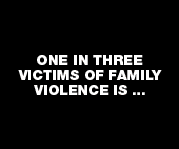Gender-Neutral Approaches to Domestic Violence
 Tuesday, April 14, 2009 at 10:30AM
Tuesday, April 14, 2009 at 10:30AM With special guests:
- Joep Zander
- Patricia Gho and
- Paddy Murray.
In the social justice arena, two small European countries appear to be way ahead of the pack, and Dads on the Air has been among the first to report these important historic developments to the English-speaking world. First, on the 10th of March we reported on the new “50/50 Equal Shared Parenting Time” laws in Belgium, and now we are pleased to report that the Dutch Government has finally recognized the need to provide domestic violence shelters for abused men.
This follows recent developments that have seen 100 places provided in 35 refuge houses for husbands and partners of abusive women in the UK, and also a NSW Government Department directive for women’s domestic violence support workers to also provide services to male victims being refused, which saw $A720,000 in funding handed back to the Government.
The groundbreaking scheme in the Netherlands involves a one year trial, supported by $A1.6 million in Dutch Government funding, to establish shelters for abused men in Amsterdam, Rotterdam, The Hague and Utrecht. There are approximately 10 places in each city, making a total of 40 places across Holland, and all are currently full. This contrasts with the 3000 beds available for female victims in the Netherlands.
First up we speak with Joep Zander, who is a well known author, artist and fathers rights activist in the Netherlands. He presents his view of the new DV shelters, acknowledging that because it is still very early days he has some reservations about the scheme. However he hopes the shelters will turn out to be successful in providing a much needed escape for men from their violent partners or families.
Next we speak with Patricia Gho of Stichting Wende (Wende Foundation, which translates as “Turning Point”), director of the men’s shelter in the Hague. Ms Gho explains in detail how the first Government-sponsored domestic violence shelters for men in the world deal with their day-to-day operations. Commenting on the radical change in Dutch Government thinking that led to the trial, she states that “the Government simply could no longer ignore all the data that has for many years shown that there is a real need to also provide shelter for the abused men in our community”.
Bringing the issue closer to home, last up we speak with Paddy Murray, the Buddhist chaplain from Goulburn prison. Mr Murray has done some interesting development work in violence-prevention in Campbelltown with both men and women. He ran the first violence prevention course for women, which unfortunately is no longer in operation. His approach, which he calls “peaceful relating”, is to move beyond gender in violence-prevention work, arguing that the gender lens is just a distortion that does not help much with the work. He is currently doing up a flat beneath his house that can be used for workshops and a men’s retreat for men in transition, marriage breakdown, war, trauma and mid-life crisis - to come and stay in a safe place, and do some counselling and bushwalking.
The Earth Times website reported on the male domestic violence shelters in the Netherlands as follows:
“Male domestic abuse victims get their own shelters in Netherlands
Amsterdam - Male victims of domestic abuse in the Netherlands can seek refuge in special shelters such as that due to open Tuesday in The Hague by Deputy Health Minister Jet Bussemaker. The four biggest cities - Amsterdam, Rotterdam, The Hague and Utrecht - each received 200,000 euros (255,920 dollars) to provide safe havens for abused men, the ministry said Monday.
Each city should provide 10 shelters. Half the total of 40 abused men’s homes will be secret shelters.
The initiative is a response to increased demand for such homes by abused men who approached various health and social welfare institutions.
Domestic abuse among men may vary from physical or mental abuse by a male or female partner to trafficking by women.
Homosexual men who receive threats from relatives or men who refuse to give in to family pressure to commit murder in the name of family honour can also make use of the shelters.
The homes are expected in particular to serve the needs of men from Oriental migrant cultures.
It is unknown how many men in the Netherlands fall victim to domestic abuse. The current programme is a one-year-pilot during which demand and specific needs will be determined.
The opening of the men’s shelters are part of a larger government campaign to fight domestic abuse.
The Dutch health ministry recently raised its domestic abuse budget from 55 million euros to 73 million euros. In 2012, the annual budget will be 87 million euros.”


